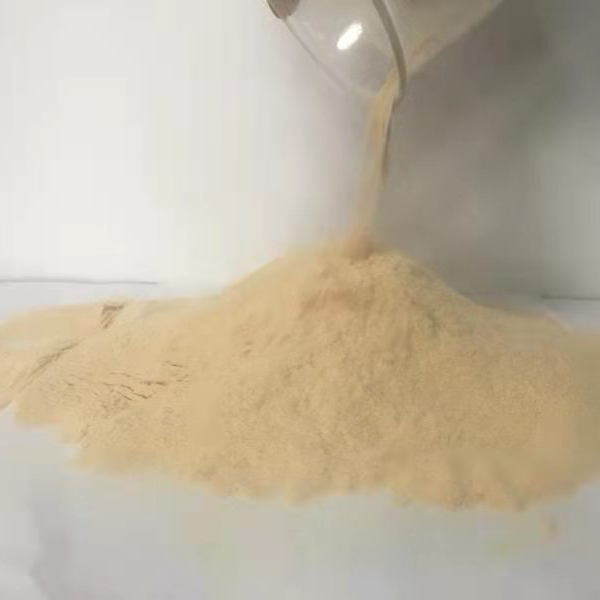
News
Nov . 04, 2024 10:26 Back to list
Supplier of Amino Acid Polymers for Various Applications and Research Needs
The Role of Amino Acid Polymers in Biotechnology
Amino acids are the building blocks of proteins, and their polymers—known as peptides and proteins—play critical roles in countless biological processes. With the advancement of biotechnology, the demand for high-quality amino acid polymers from reputable suppliers has surged. This article explores the importance of amino acid polymers, their applications, and considerations when selecting a supplier.
What Are Amino Acid Polymers?
Amino acid polymers are formed when amino acids link together through peptide bonds. The simplest form, oligopeptides, consists of a small number of amino acids, typically fewer than 20. As these chains grow longer, they become polypeptides and ultimately form proteins. The sequence of amino acids in a polymer determines its structure and function, making them incredibly diverse in their biological activities.
Applications of Amino Acid Polymers
1. Pharmaceuticals One of the most significant applications of amino acid polymers is in drug development. Many therapeutic agents are peptide-based and can be used for a wide range of medical treatments, including diabetes management, cancer therapies, and vaccines. Their specificity and ability to interact with proteins and enzymes make them valuable in targeted therapies.
2. Cosmetics Amino acids and their polymers are also widely used in the cosmetics industry. Collagen, which is a protein made up of amino acid polymers, is a key ingredient in many skin care products. It helps to improve skin elasticity and hydration, making it appear more youthful. Other peptides are known to promote hair growth and enhance skin repair.
3. Food Industry In the food sector, amino acid polymers are utilized for their nutritional value. Proteins derived from various sources such as soy, whey, and casein can be processed into protein powders, bars, and supplements. These products are essential for athletes and individuals looking to maintain a balanced diet.
4. Biotechnology In research and industrial applications, amino acid polymers are critical components in various biotechnological processes. They are used in producing enzymes, antibodies, and other proteins that are pivotal in diagnostics and therapeutics. Their ability to be synthesized in a controlled manner allows scientists to produce specific proteins for research and clinical use.
polymer of an amino acid supplier

Considerations for Choosing an Amino Acid Polymer Supplier
When selecting a supplier for amino acid polymers, several factors should be assessed to ensure high-quality products
1. Quality Assurance It is vital to choose a supplier with strong quality assurance practices. This includes rigorous testing for purity, potency, and the absence of contaminants. Suppliers that comply with Good Manufacturing Practices (GMP) are often more reliable.
2. Reputation and Experience Supplier reputation is crucial. Research their background, customer reviews, and any certifications they may have. Established suppliers often have more experience and a deeper understanding of the market, allowing them to provide better support and innovation.
3. Customization Capabilities Many applications require specific amino acid sequences or structures. Look for suppliers that can customize their products to meet specific needs or research requirements. This flexibility can significantly enhance the effectiveness of your applications.
4. Supply Chain Reliability A dependable supply chain is essential for timely delivery of amino acid polymers, especially in industries like pharmaceuticals where production schedules can be critical. Evaluate the supplier's logistics and distribution capabilities.
5. Technical Support Lastly, consider the level of technical support offered. Suppliers that provide detailed documentation, product information, and responsive customer service can greatly assist researchers and manufacturers in achieving optimal results with their products.
Conclusion
Amino acid polymers serve as fundamental components in various industries, from pharmaceuticals to food science. Selecting the right supplier is critical in ensuring the quality and reliability of these essential biomolecules. As research and applications continue to evolve, the role of amino acid polymers will remain central to innovation in biotechnology and beyond.
-
Polyaspartic Acid Salts in Agricultural Fertilizers: A Sustainable Solution
NewsJul.21,2025
-
OEM Chelating Agent Preservative Supplier & Manufacturer High-Quality Customized Solutions
NewsJul.08,2025
-
OEM Potassium Chelating Agent Manufacturer - Custom Potassium Oxalate & Citrate Solutions
NewsJul.08,2025
-
OEM Pentasodium DTPA Chelating Agent Supplier & Manufacturer High Purity & Cost-Effective Solutions
NewsJul.08,2025
-
High-Efficiency Chelated Trace Elements Fertilizer Bulk Supplier & Manufacturer Quotes
NewsJul.07,2025
-
High Quality K Formation for a Chelating Agent – Reliable Manufacturer & Supplier
NewsJul.07,2025
